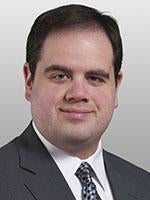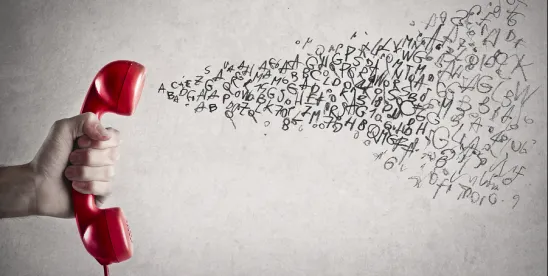The U.S. Court of Appeals for the D.C. Circuit on Friday issued a long-awaited ruling in a lawsuit challenging the Federal Communications Commission’s interpretations of key terms under the Telephone Consumer Protection Act of 1991 (“TCPA”), holding that the FCC in 2015 had adopted an unreasonably broad definition of the type of calling equipment subject to special restrictions under the TCPA — a definition so broad it would include any modern smartphone — and had failed to adequately justify its approach regarding liability for calls placed to cell phone numbers that have been reassigned to a new user.
The court upheld the FCC’s ruling that a party who has consented to receive calls may revoke that consent “through any reasonable means clearly expressing a desire to receive no further messages from the caller.” The court also upheld the FCC’s decision to exempt from the TCPA’s consent requirements certain calls communicating urgent healthcare messages.
The D.C. Circuit’s unanimous decision addresses a consolidated set of petitions by various companies and trade associations — first filed in the summer and fall of 2015 and argued before the D.C. Circuit in 2016 — seeking review of a declaratory ruling released by the FCC in July 2015 (the “Omnibus Ruling”). In the Omnibus Ruling, the FCC ruled on a total of 21 petitions seeking “clarification or other actions” regarding the TCPA, principally in connection with automated calls and text messages.
Petitioners sought court review of four aspects of the Omnibus Ruling:
Definition of Autodialers
Under the TCPA, a caller may not call any mobile telephone number using an automatic telephone dialing system (“ATDS” or “autodialer”), a prerecorded message, or an artificial voice (except for emergency purposes) unless the caller has obtained the recipient’s “prior express consent” to such a call. The FCC has interpreted this term to require signed, written consent (or its electronic equivalent) if the call contains an advertisement or constitutes “telemarketing.” The TCPA defines an ATDS as equipment “which has the capacity . . . to store or produce telephone numbers to be called, using a random or sequential number generator” and “to dial such numbers.”
In the Omnibus Ruling, the FCC held that any equipment that has the existing ability to act as an ATDS or that could feasibly be modified to have such abilities — such as through a software update — has the “capacity” to act as an ATDS, and that any call made using equipment that has such a capacity is subject to the TCPA’s autodialer restrictions, irrespective of whether any autodialer features actually are used to make the call. The D.C. Circuit found, as the petitioners argued, that under the FCC’s approach any smartphone would qualify as an autodialer, as any smartphone could download an app or other software with the necessary functionalities. In rejecting the FCC’s interpretation, the court held that “[t]he TCPA cannot reasonably be read to render every smartphone an ATDS subject to the Act’s restrictions, such that every smartphone user violates federal law whenever she makes a call or sends a text message without advance consent.”
The court found that the FCC’s overbroad interpretation of when equipment has the “capacity” to act as an autodialer was compounded by the Omnibus Ruling’s conflicting statements about what features are necessary to qualify as an autodialer, and specifically whether an autodialer must be able to (1) generate random or sequential numbers to be dialed, (2) dial numbers without human intervention, and/or (3) “dial thousands of numbers in a short period of time.” The court therefore struck down the FCC’s interpretation of the TCPA’s ATDS definition.
The court also noted that the definitional issues it identified would have less “practical significance” if the TCPA’s autodialer restrictions applied only to calls placed using autodialer functions, a position advocated by Commissioner O’Rielly in his dissent to the Omnibus Ruling. No petitioner challenged the Omnibus Ruling’s contrary holding, but the court suggested that the FCC “could choose to revisit the issue in a future rulemaking or declaratory order, and a party might then raise the issue on judicial review.”
Reassigned Numbers
The Omnibus Ruling held that when the TCPA requires a caller to obtain consent for a call, “the TCPA requires the consent not of the intended recipient of the call, but of the current subscriber (or non-subscriber customary user of the phone)” that actually receives the call. This interpretation means that, when a number is reassigned, a caller who obtained the previous subscriber’s consent could be liable for placing calls to the number’s new subscriber, even though the caller may have no way to know that the number has been reassigned.
The Omnibus Ruling held that callers who have consent to make calls to a number would not be liable for the first call to the number after its reassignment but would be liable for all subsequent calls — regardless of whether the caller could reasonably determine from the first call that the number had been reassigned.
The D.C. Circuit agreed that the Omnibus Ruling’s interpretation of “called party” was permissible, but held that the FCC failed to provide a “reasoned (and reasonable) explanation of why its safe harbor stopped at the seemingly arbitrary point of a single call or message.” The court found that the Omnibus Ruling’s holdings on these two points could not be separated, and the court accordingly struck down both holdings.
Revocation of Consent
The court upheld the Omnibus Ruling’s holding that consumers who have granted their consent to be contacted by a caller may revoke their consent by any reasonable means, rather than allowing callers to define the exclusive means of opting out. The court concluded that petitioners’ concerns about the burden of the FCC’s approach were “overstated,” but also noted that if a caller has provided a clear, easy-to-use opt-out mechanism, “any effort to sidestep the available methods in favor of idiosyncratic or imaginative revocation requests might well be seen as unreasonable.” The court also confirmed that nothing in the FCC’s rules would prevent callers and called parties from mutually agreeing to consent revocation terms.
Exemption for Healthcare-Related Calls
The Omnibus Ruling established an exemption from the TCPA’s consent requirements for calls and messages “for which there is exigency and that have a healthcare treatment purpose,” such as appointment reminders, pre-operative instructions and lab results. The court rejected a challenge from Rite Aid arguing that the FCC’s exemption was too narrow because it excludes other types of healthcare communications permitted under HIPAA (such as billing-related calls) or because the limitations on the exemption are arbitrary and capricious. The court concluded that the HIPAA regulations have no effect on the FCC’s “authority to exempt (or refrain from exempting) certain kinds of calls from the TCPA’s consent requirement,” and that the FCC adequately explained the limitations it adopted for the exemption.




 />i
/>i

